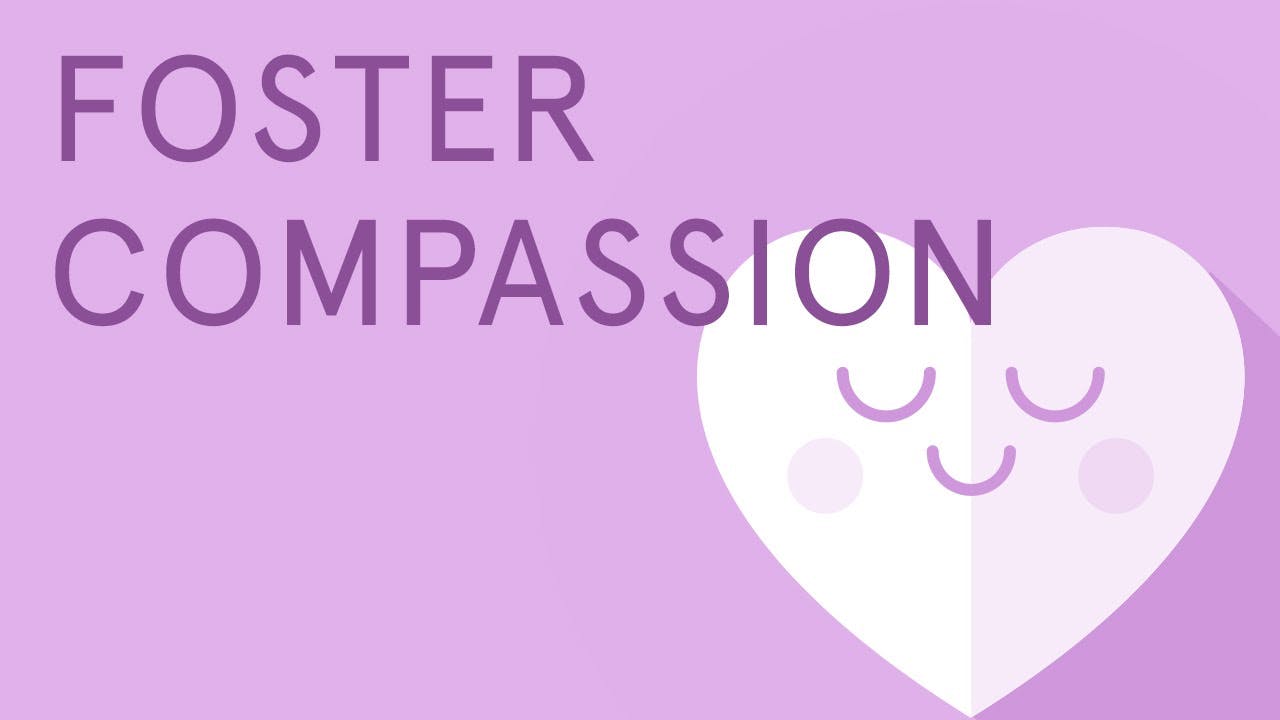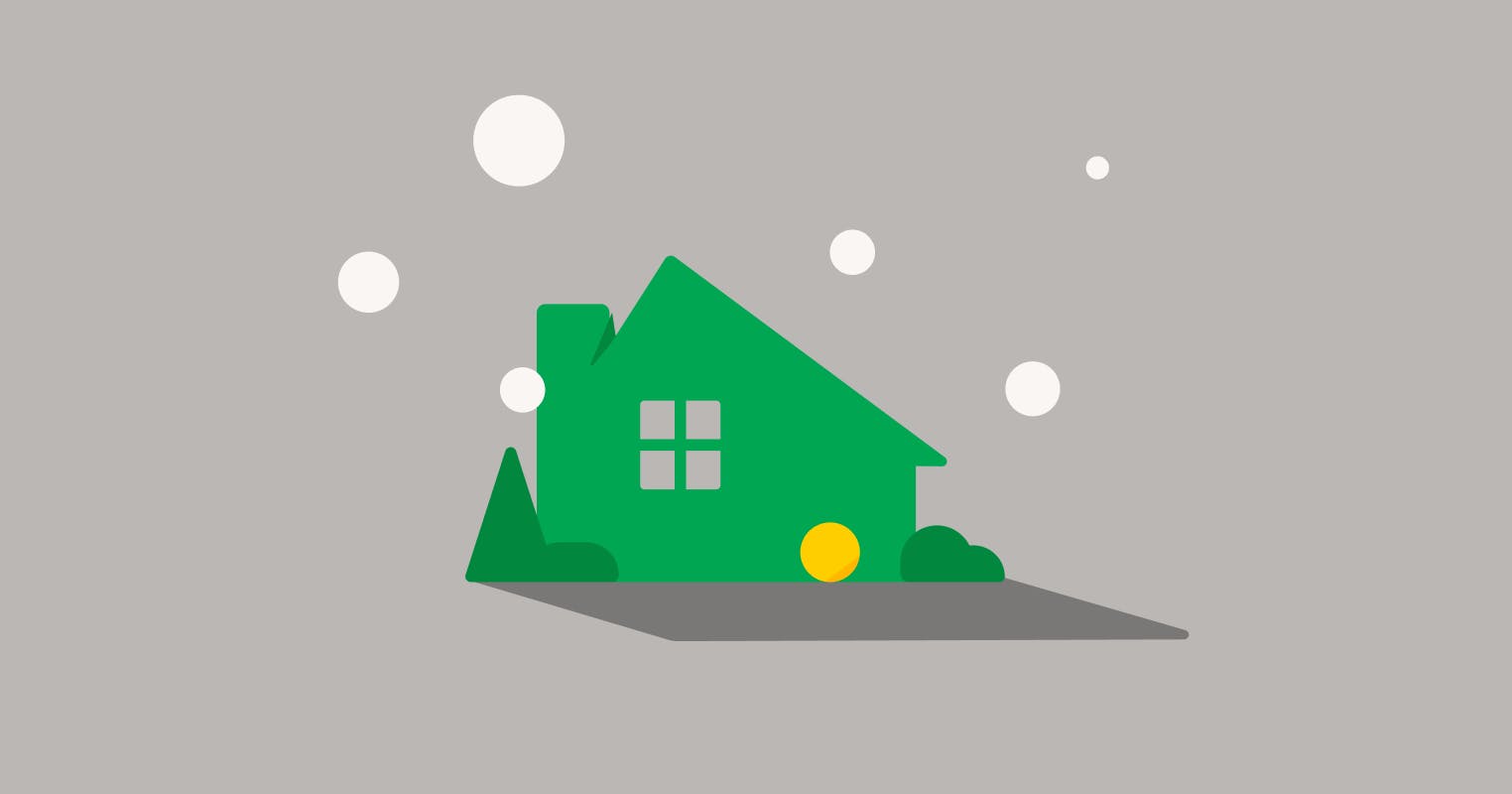What to do if you're alone for the holidays
Researched and written by our mindfulness and meditation experts | Learn more
Nov 10, 2023
The festive season can be a time of joy and unity. But the emphasis placed on togetherness can also make it a challenging time for those spending the holidays alone, especially when the absence of social connection can heighten any sense of isolation.
The first thing to know is that it’s perfectly normal to feel the deep sadness that comes up when experiencing loneliness. The holiday season can almost seem cruel, serving to magnify those feelings. And we can be in this place for a number of reasons — growing older, the death of a loved one, a relationship breakup, geographical distance from home, or circumstances that give us no other option. Whatever the reason, it can be so difficult to navigate all the different emotions that arise.
It’s also worth remembering that if we’re missing loved ones during the holidays, we’re in fact not alone (even if the story in our head might beg to differ). According to a recent survey, nearly 1 in 4 adults around the world reported feeling very or fairly lonely, with young adults ages 19 to 29 experiencing even higher rates. We might not immediately feel a connection to others if we’re alone for the holidays, but it’s important not to forget that many others are sharing the same experience at the same time. So, how might each of us cope?
There really is always someone to talk to, even if family or friends aren’t around or available: we’ve compiled a list of trusted mental health resources from around the globe who can provide support whenever needed.
But we might also take comfort in the fact that we can find loving kindness within ourselves. Compassion for ourselves (and others) can be easily accessed with mindfulness and meditation.

Kindness: How to Be Nicer to Yourself
2 min
Loneliness is a natural feeling
First, let’s consider the difference between loneliness and being alone. Being alone is when we’re physically by ourselves, while being lonely is an emotional state of feeling isolated or disconnected. We can feel lonely if our social and relationship needs are not being met, and it can be experienced in a room full of people.
Former Surgeon General Dr. Vivek Murthy, who spoke about the importance of human connection during the COVID-19 pandemic, stresses that not only is it totally natural to feel lonely, in fact it’s human instinct. He says, “Saying you're lonely feels like saying you're not likeable, you're not lovable — that somehow you're socially deficient in some way. The reality is that loneliness is a natural signal that our body gives us, similar to hunger, thirst.”
Now, when we get thirsty, we can take a drink and when we’re hungry, we can find something to eat. But what can we do when we experience this other “natural signal” — more specifically, holiday loneliness? This is where meditation and mindfulness become our friends.
Finding happiness on our own with meditation
When we’re feeling sadness about being alone, we often turn to external distractions, like scrolling on our phones or social media to try to escape those thoughts. Or maybe we try to wish away our loneliness, which only fuels the narrative that being alone during the holidays is bad. Sitting in silence and leaning into the emotion may not seem appealing, especially when we’re on our own. But, in fact, it may be the perfect condition to take part in a daily practice.
A small 2012 study showed that elderly people who took part in an 8-week meditation program targeting mindfulness-based stress reduction reported reduced feelings of loneliness, alongside a decrease in inflammation. The participants were taught to be attentive to the present and not dwell in the past or project into the future.
Headspace co-founder and former Buddhist monk Andy Puddicombe has called being more present “the antidote to loneliness.” When we’re connected to the present moment, we learn to be more at ease with our thoughts as they come and go. Andy says, “It's okay to feel sadness, that is our life at that moment. If we can be open to that and allow that into our life, we start to discover things about ourselves that might surprise us.”
One such discovery could be the fact that spending holidays alone is neither good nor bad. It’s the narrative we create around it that can get us down. Through our own internal dialogue, we tell ourselves a story (usually a negative one) around why we’re lonely, or we indulge the emotions that come up. All this does is reinforce the feeling, and so we inevitably feel worse and worse.
With a regular meditation practice, we become more aware of these storylines and our judgmental tendencies, and we learn to let go of the storylines and emotional fuel; instead, we cultivate a mind that’s calmer and more accepting of whatever emotions arise. We develop a greater sense of ease while also being kinder to ourselves.
This reserve of kindness often gets obscured by mental chatter like thoughts, hopes, and worries. As a result, our kindness tends to get squeezed to make room to the extent that we might forget we possess such a quality. We might even scoff that it’s a part of us at all.
The more we meditate with loving-kindness in mind, the more we foster compassion and let go of judgment and hostility about getting through the holidays alone. And the more we familiarize ourselves with our own pain and suffering, the more we understand the quiet suffering in others.
How to deal with being alone for the holidays
How might someone who’ll be alone for the holidays spend their time? Try turning to meditation and mindfulness, which can help us feel at ease in our own company.
- Embrace self-compassion.
Think about the way we treat close friends — whether it’s on a day-to-day basis or in times of trouble. Chances are, we speak to them in a gentle manner and are sympathetic toward their struggles. Now think about our own internal dialogue, whether it’s daily thought patterns about ourselves or when we feel like we’ve failed at something. Are we giving ourselves the same kindness and understanding that we’d offer a friend? Most likely not. But imagine if we were.
By practicing meditation for self-compassion, we can start letting go of that nagging inner voice that is constantly trying to bring us down with negative self-talk or, even worse, sabotage our chances of success and happiness.
- Practice gratitude.
Whether through a gratitude meditation or by keeping a gratitude journal, learning how to be more grateful has science-backed benefits. One study found that those who are consistent about practicing gratitude reported lower blood pressure, improved immune function, and facilitated more efficient sleep.
It even reduces lifetime risk for depression, anxiety, and substance abuse disorders, and is a key resiliency factor in the prevention of suicide.
- Step outside.
Several studies have shown that spending time in nature — beaches, forests, and other wide-open spaces — can reduce anxiety, depression, and decrease risks for different diseases. But we don’t have to trek to the ocean or mountains to experience these mental and physical health benefits. Even city-dwellers who spend just 20 minutes sitting in a nearby park can improve their well-being.
The pavement can also become a space used for outdoor rejuvenation. Try a walking meditation to get the mind to walk with us and to bring a relaxed focus to this exercise. It’s amazing how different we feel when paying attention to what’s going on around us rather than what’s swirling around in our head.
- Prioritize self-care.
Small, mindful acts that prioritize no one but ourselves are key to keep us feeling mentally and physically well. Self-care may look like practicing meditation, eating mindfully, or getting a good night’s sleep — all practices which have been linked to health benefits such as reduced levels of stress and anxiety, improvements in mood, immune function, focus, and increased productivity, to name a few. We might even indulge in the ultimate form of self-care: doing nothing.
- Plan something.
We’ve discussed the importance of living in the present moment. But having something to look forward to can also be beneficial, especially if spending the holidays alone is something we’re dreading. One study showed that the act of planning a trip made participants happier than actually taking the trip. That’s likely because the anticipation leading up to it provided the participants enjoyment weeks — maybe months — before their trip began.
As the holidays approach, we can build excitement for going on an excursion, starting a project, or making a big purchase by thinking, researching, budgeting, and organizing for it … now.
- Stick to routines.
If we find it tough to engage with the landmark in any way, remember it is only one day. Routine can help alleviate stress. So we can choose to tune out the jingle bells and go about our daily business like any other day: do our chores, watch a movie, make a meal, meditate. And the next day, it will be over.
It might even be helpful to silence our devices to avoid news anxiety or negative effects of social media, like FOMO from photos of gatherings.

Try 6 meditations when we’re alone for the holidays
Looking for more meditations that can help if we’re spending the holidays alone? The Headspace app offers members several courses and single meditations on dealing with loneliness and unlocking our happiness when alone, including:
Learn to feel more connected to the world around you.
Allow yourself to unwind when no-one’s around.
Develop a more playful attitude towards life and begin to understand how your own happiness impacts others.
Save your energy and focus it on your intentions.
Foster feelings of compassion towards yourself and learn to judge others less harshly too.
Tap into the love that’s always available to you.
Headspace co-founder Andy reminds us that we are all connected, and our community is larger than the people who sit around our table for a holiday dinner.
“We can only be lonely as an individual if we think about ourselves as being separate from others, separate from the world around us,” he says. “As soon as that idea is gone, then loneliness can't even exist as a concept.”
And if we find it tough being alone for the holidays, remember it is just another day. If we can let go of the preconceived idea of what it should be, and just be present as it unfolds from moment to moment, we might just find a gift in the day itself, as it unwraps in front of us.
Key takeaways:
-
There’s a big difference between being lonely and being alone
-
Meditation and mindfulness helps us feel at ease in our own company
-
Try 6 meditations for finding peace and joy when alone for the holidays


Be kind to your mind
- Access the full library of 500+ meditations on everything from stress, to resilience, to compassion
- Put your mind to bed with sleep sounds, music, and wind-down exercises
- Make mindfulness a part of your daily routine with tension-releasing workouts, relaxing yoga, Focus music playlists, and more

Similar articles

Stay in the loop
Be the first to get updates on our latest content, special offers, and new features.
By signing up, you’re agreeing to receive marketing emails from Headspace. You can unsubscribe at any time. For more details, check out our Privacy Policy.
- © 2026 Headspace Inc.
- Terms & conditions
- Privacy policy
- Consumer Health Data
- Your privacy choices
- CA Privacy Notice







